Want to be in the loop?
subscribe to
our notification
Business News
VIETNAM TARGETS STRATEGIC FDI FOR INNOVATION AND LONG-TERM VALUE
Vietnam is reshaping its foreign direct investment strategy to prioritise high-quality, technology-driven, and sustainable projects, aiming to boost innovation, productivity, and national competitiveness in a changing global landscape.
The Q&A session on June 19 of the ongoing 15th National Assembly (NA) Legislature centred on the effectiveness and future direction of foreign direct investment (FDI) attraction policies.
Minister of Finance Nguyen Van Thang, who chaired the session, appreciated the vital role that foreign investment plays in the development journey of many countries and noted that Vietnam has adopted sound and appropriate policies to entice foreign capital, contributing significantly to the country’s industrialisation drive.
Responding to concerns from deputy Nguyen Cong Long from the NA delegation of the southern province of Dong Nai about the rights and interests of workers employed in foreign-invested enterprises (FIEs), Minister Thang revealed that the FDI sector currently employs 5.1 million workers, accounting for nearly 10 per cent of the national labour force and 20 per cent of salaried workers.
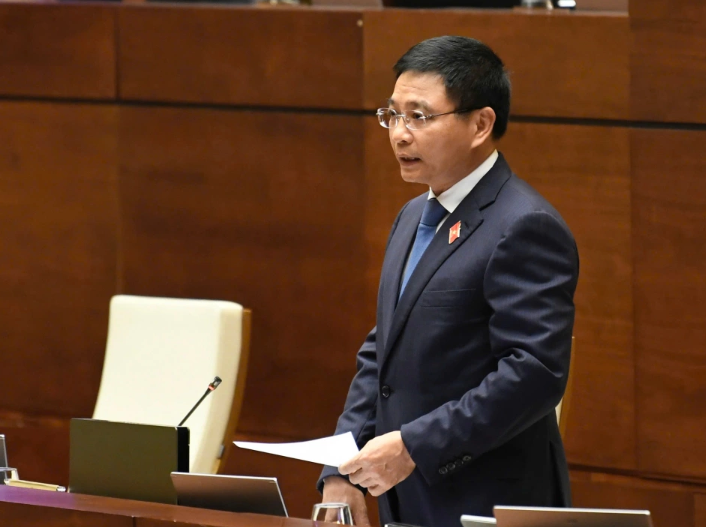
Minister of Finance Nguyen Van Thang
"In addition to direct employment, this sector indirectly creates jobs for many others," said the minister.
He also noted that 57 per cent of FIEs provide training for their employees. This has helped improve labour quality and productivity within FIEs and fostered broader human resource development through workforce mobility across sectors.
However, Minister Thang acknowledged shortcomings within the FDI sector, especially concerning labour management.
"Currently, 43 per cent of FIEs do not have training plans for their workers. This is a matter of concern. To better protect and improve labour quality in this sector, workforce training should be a prerequisite for attracting overseas funding," said Thang.
Earlier in the session, NA deputy Pham Hung Thang from Ha Nam province highlighted a key advantage of foreign investment in facilitating technology transfer and enhancing innovation, research, and development capacity.
He urged Minister Thang to elaborate on the impact of FDI on Vietnam’s scientific and technological advancement and the solutions for more effective technology transfer through foreign-invested projects.
Meanwhile, deputy Mai Van Hai from Thanh Hoa province requested clarification on current global investment trends and Vietnam’s orientation in attracting high-quality FDI amid complex geopolitical, geo-economic, and supply chain shifts worldwide.
Addressing these points, Minister Thang stated that Vietnam’s stable political environment and favourable investment climate constitute strong advantages, and despite global uncertainties, inflows of funding from abroad into Vietnam continue on a positive trajectory.
"Vietnam is developing a distinct competitive strategy to draw in sustainable foreign investment," he said.
This strategy involves moving away from reliance on tax incentives and towards improving the quality of investment-related services, industrial and economic zone infrastructure, electricity supply, ensuring clean land availability, skilled labour, and post-licensing administrative reforms.
Regarding future FDI directions, Minister Thang underscored the need for selectivity.
"To achieve its ambition of becoming a developed nation by 2045, Vietnam must prioritise high-tech, innovative, value-added, and environmentally sustainable projects rather than pursuing investment volume at all costs. Strategic partners such as the G7 nations, South Korea, Singapore, Taiwan, the US, and the EU will remain key targets in our investment promotion efforts, especially in sectors aligned with Vietnam’s development priorities," he added.
In Minister Thang’s words, by the end of May, Vietnam was home to nearly 44,000 foreign-led projects with the total registered investment capital of $517 billion. Disbursed capital reached $331.5 billion, equal to 64.6 per cent of the total committed volume.
In 2024 alone, foreign-invested enterprises contributed approximately $20.5 billion to the state budget, representing a 12 per cent increase and accounting for 24.7 per cent of total government revenue.
Source: VIR
Related News
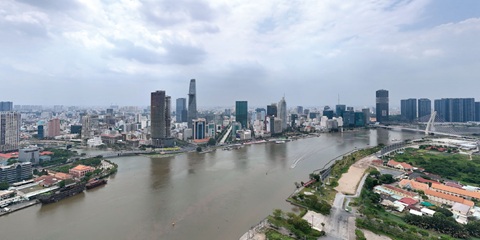
HCMC LOOKS TO LURE US$11 BILLION IN FDI FOR 2026
To reach the milestone – a significant jump from US$8.37 billion in 2025 – the city is adopting a selective high-quality approach. Priority is given to high-tech and digital transformation with semiconductor, AI, and data centers; logistics and finance with the Vietnam International Financial Center in HCMC and the Cai Mep Ha Free Trade Zone and smart infrastructure with transitioning existing industrial parks into eco-smart models.
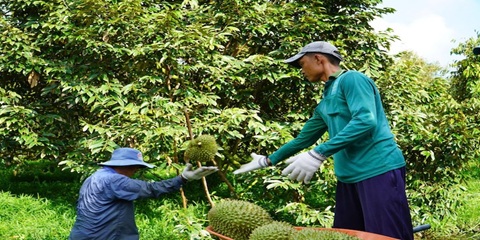
DURIAN EXPORTS PROJECTED TO HIT US$1 BILLION IN Q1
Vietnam can gain US$1 billion in revenue from durian products exports within the first quarter of this year, provided that customs clearance at northern border gates remains favorable. This optimistic outlook was given by the Agency of Foreign Trade under the Ministry of Industry and Trade following a good start to the year, with January figures reaching over US$117 million, up by a staggering 275% year-on-year.
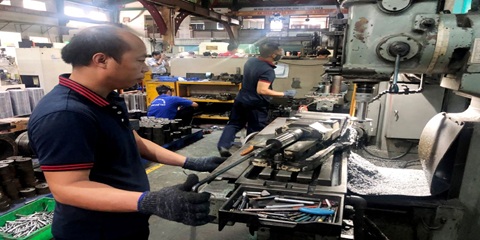
MANUFACTURING SECTOR HITS FOUR-MONTH HIGH ON STRONGER DEMAND
Vietnam’s manufacturing sector expanded at a faster pace in February, with the Purchasing Managers’ Index (PMI) rising to 54.3 from 52.5 in January, marking the strongest improvement in four months, according to S&P Global. The reading remained well above the 50-point threshold that separates expansion from contraction. It also extended the sector’s current growth streak to eight consecutive months, reflecting improving business conditions.
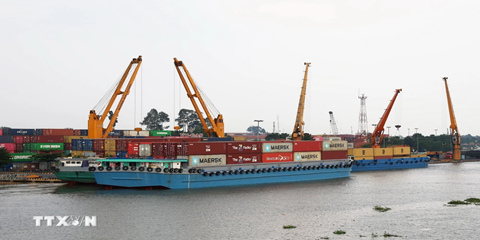
TRADE DEFICIT WIDENS IN EARLY FEBRUARY AS IMPORTS SURGE
Vietnam posted a trade deficit of about US$948 million in the first half of February 2026, as imports rose faster than exports, according to preliminary data from the Department of Vietnam Customs. Total trade between February 1 and 15 reached US$41.67 billion. Exports stood at US$20.36 billion, while imports totaled US$21.31 billion.

FRANCE SEES VIETNAM AS KEY EXPORT MARKET IN 2026
France’s public investment bank Bpifrance has ranked Vietnam among the five most promising export markets for French companies in 2026, alongside Indonesia, Morocco, Canada, and the United Arab Emirates, reported the Vietnam News Agency. The assessment highlights Vietnam as a destination with strong growth potential at a time when global trade remains volatile and many exporters still focus on traditional markets such as Germany, the United States, and China.
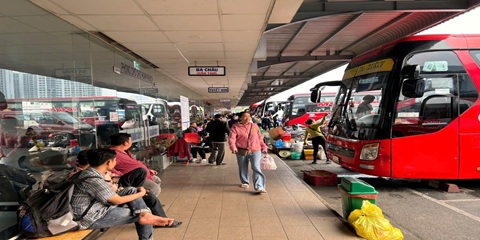
HCMC SEES 14 MILLION PASSENGER TRIPS DURING LUNAR NEW YEAR
HCMC handled more than 14 million passenger trips during the nine-day Lunar New Year (Tet) holiday from February 14 to 22, according to the city’s Department of Construction. Le Hai Phong, deputy head of the Road Transport Management Division under the Department of Construction, told a press briefing on February 26 that transport services met strong travel demand while traffic accidents declined and no serious incidents or prolonged congestion were reported.
























